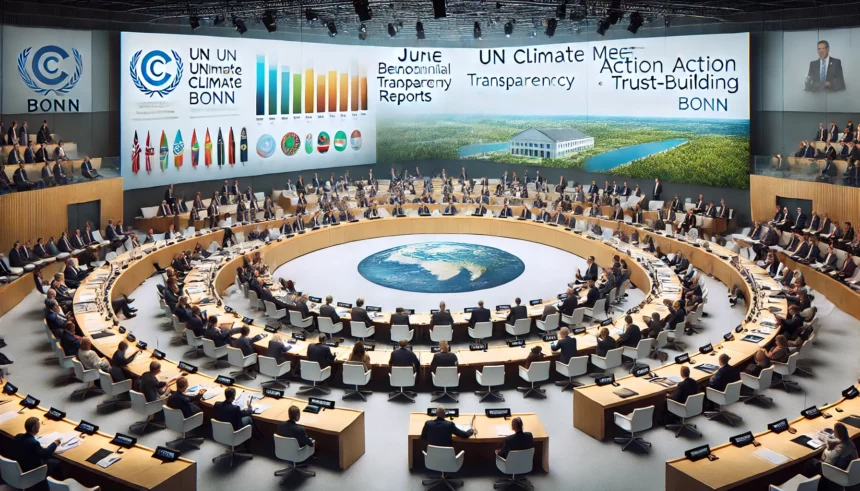During the June UN Climate Meetings in Bonn, Germany, 23 countries came together to demonstrate their efforts in tackling climate change. The focus was on transparency, trust-building among nations, and crafting stronger climate policies. Here’s a closer look at what happened.
Developing Nations Share Climate Achievements
Eight developing countries participated in a Facilitative Sharing of Views (FSV) workshop. This was a platform where they:
- Highlighted their climate achievements
- Discussed building stronger institutional systems
- Shared challenges and areas needing improvement
Developed Countries Evaluate Progress
In a Multilateral Assessment (MA) session, fifteen developed countries reviewed their progress towards the 2020 climate targets. This session was key in assessing how well they are doing and what steps they need to take next.
Insights from Over Two Decades of Climate Reporting
Reflecting on over two decades of measurement, reporting, and verification (MRV) processes, UN Climate Change Executive Secretary Simon Stiell stated:
“Transparency gives us an abundance of data. Data that can be systematized and applied to scale up solid solutions and good investments. This empowers the next round of NDCs (national climate action plans) with evidence-based transparency. It makes us accountable, knowing the impact of our collective efforts and investments.”
National Initiatives and Climate Actions
During the FSV and MA sessions, countries showcased various initiatives, including:
- Aiming for carbon neutrality by 2050
- Boosting renewable energy and energy efficiency
- Implementing sustainable agriculture and agroforestry
- Promoting economic instruments like carbon pricing policies
These sessions allowed countries to learn from each other and share innovative ways to combat the climate crisis.
Preparations for Biennial Transparency Reports
A significant focus of the meetings was the preparation for the first biennial transparency reports (BTR) under the Paris Agreement’s enhanced transparency framework (ETF), due by the end of the year.
Simon Stiell emphasized:
“By the end of June, we will deliver a new reporting tool. This tool and the broader enhanced transparency framework will provide navigational support for us to know where we are collectively heading. It will show how all this transparency data fits together.”
Transition to a New Joint Process
As countries transition to the ETF, the FSV and MA will be replaced by the Facilitative Multilateral Consideration of Progress (FMCP). This new process will build on the experiences gained from FSV and MA, helping countries share and learn from each other’s best practices in delivering climate action and support.
Conclusion
The June UN Climate Meetings were a crucial step forward in enhancing global climate ambition. By showcasing their progress and plans, countries not only demonstrated their commitment to fighting climate change but also paved the way for more transparent and effective climate policies.
By working together and sharing knowledge, nations can achieve greater success in their climate efforts, ensuring a healthier planet for future generations.
















